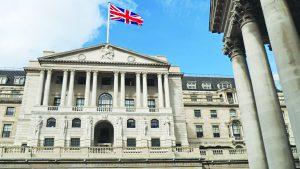BLOOMBERGÂ
Bank of England (BOE) Governor Andrew Bailey rejected the need for an inflation target higher than 2%, warning that changing the goal could damage the bank’s credibility and “unpick expectations.â€
He told a conference in Aix-en-Provence in France that the BOE can be flexible about timing but that it’s “absolutely critical that that flexibility isn’t confused with people thinking we are not pursing 2% anymore.â€
The BOE is struggling to get inflation down amid signs that it’s becoming entrenched. Annual consumer-price gains are now at 8.7%, over four times the central bank’s remit, and the highest of the Group of Seven major economies. Bailey acknowledged that the problems were “more severe in the UK.â€
Even so, he insisted that policymakers “will bring inflation back to target†and added that “we do have some flexibility about how quickly we bring it back to target.â€
Bailey referred to the BOE’s leeway to lengthen its horizon to bring price growth down from the usual two years to three years if necessary.
Last month, the UK central bank raised rates by a surprise half point to 5%. Markets now expect it to increase them to 6.5% to fend off a wage-price spiral, but most economists fear that doing so will trigger
a recession.
Some have suggested changing the inflation target to 3% to take immediate pressure off central banks and avert a rate-induced slump.
The issue of a higher target came up in a panel debate with other central-bank chiefs and top economists. Also on the panel, François Villeroy de Galhau, governor of the Bank of France, cautioned against raising the target.
“If we announced that our inflation target was 3% instead of 2%, lenders would immediately demand higher interest rates,†de Galhau said. Doing so raised the risk that central banks would “lose all credibility,†a point on which Bailey concurred.
 The Gulf Time Newspaper One of the finest business newspapers in the UAE brought to you by our professional writers and editors.
The Gulf Time Newspaper One of the finest business newspapers in the UAE brought to you by our professional writers and editors.
